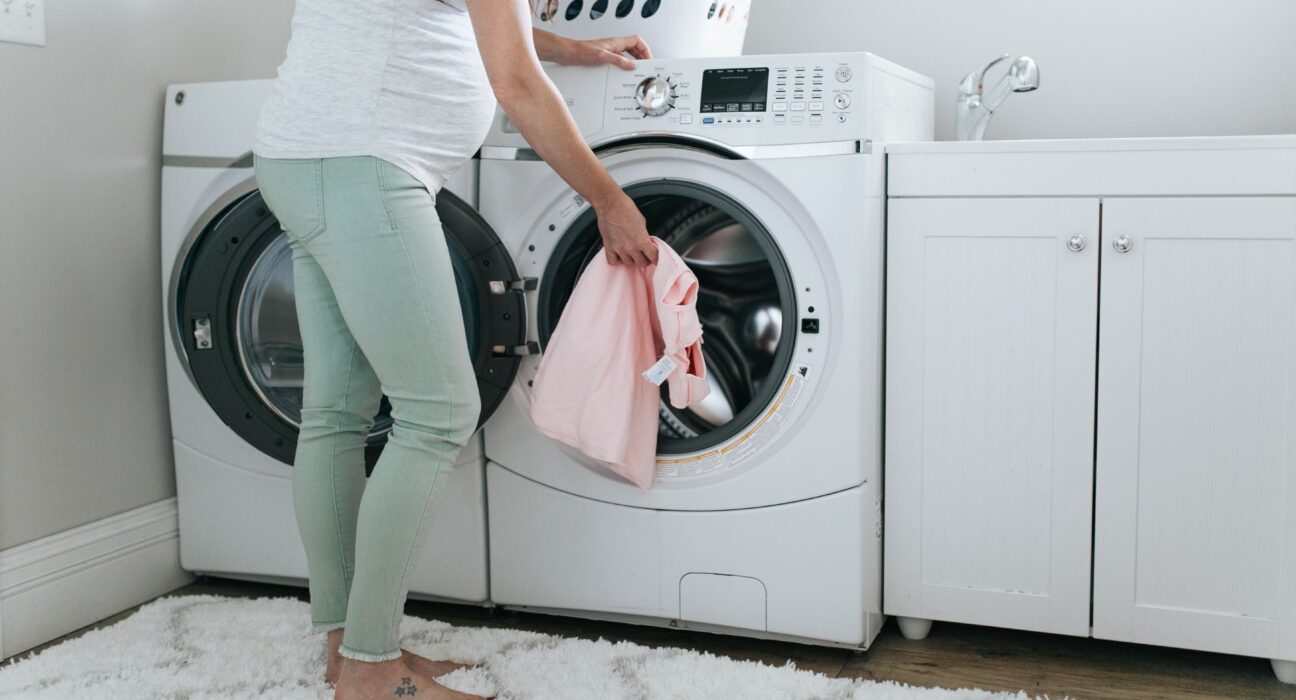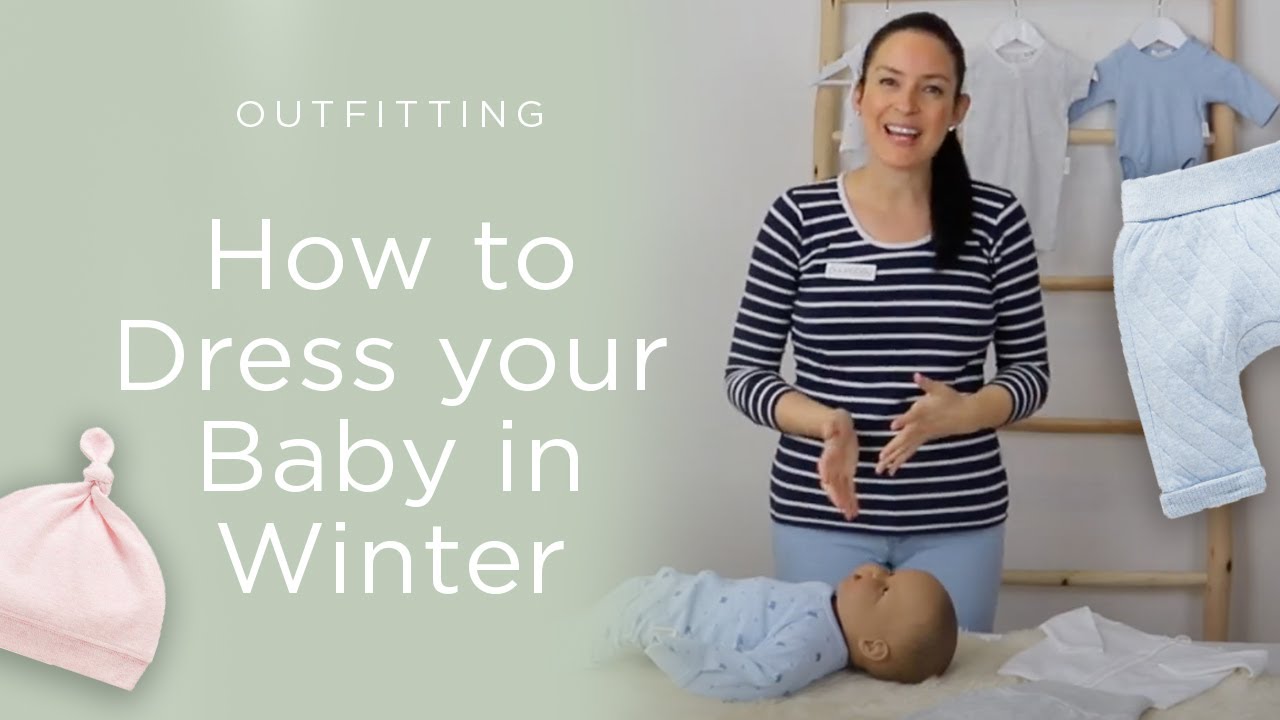Using dryer sheets with newborn clothes is not recommended. They can irritate sensitive skin and reduce the effectiveness of flame-retardant fabrics.
Newborns have delicate skin that is particularly susceptible to irritation. Parents often seek ways to keep baby clothes soft and static-free. While dryer sheets may seem convenient, they contain chemicals that can cause rashes and allergies. Opting for alternatives like fragrance-free fabric softeners or dryer balls can be safer choices.
These options keep clothes soft without risking your baby’s comfort. Keeping newborn clothes clean and gentle is essential for their well-being. Understanding the best laundry practices helps ensure a safe and comfortable environment for your little one. Always prioritize products specifically designed for sensitive skin when washing baby garments.
Table of Contents
Introduction To Newborn Laundry
Washing newborn clothes requires special care and attention. Babies have sensitive skin. Choosing the right laundry products is crucial. Parents often wonder about using dryer sheets. Understanding the best practices helps keep your baby safe and comfortable.
The Delicate Nature Of Newborn Skin
Newborn skin is soft and fragile. It can react to harsh chemicals. Common issues include:
- Rashes
- Redness
- Itching
Choosing gentle laundry options is vital. Look for hypoallergenic products. These are less likely to irritate delicate skin. Always perform a patch test on a small area before full use.
Common Laundry Practices For Infants
Washing infant clothing requires specific steps. Follow these guidelines for safe laundry:
- Use a gentle detergent. Look for one designed for babies.
- Wash new clothes before wearing them. This removes any residues.
- Avoid fabric softeners and dryer sheets. They may contain allergens.
- Use hot water for whites and warm for colors. This helps kill germs.
- Dry clothes thoroughly. Check for any remaining detergent.
Creating a safe laundry routine ensures your baby stays comfortable. Always prioritize gentle and safe products.
Understanding Dryer Sheets
Dryer sheets are common laundry items. Many people use them for a fresh scent and to reduce static. But, can you use them with newborn clothes? Let’s explore the details.
What Are Dryer Sheets?
Dryer sheets are thin fabric sheets coated with fabric softeners. They help soften clothes and add fragrance. Some key points about dryer sheets include:
- Available in various scents
- Reduce wrinkles
- Minimize static cling
- Easy to use
How Dryer Sheets Work
Dryer sheets work through a simple process. They release chemicals into the dryer. This helps to coat fabrics. Here’s how it works:
- Heat Activation: The heat from the dryer activates the chemicals.
- Fabric Softening: The chemicals bond to the fibers, making them softer.
- Static Reduction: The coating prevents static electricity build-up.
- Fragrance Release: The scent spreads to give clothes a fresh smell.
While they have benefits, consider the safety for newborns. Some chemicals may irritate sensitive skin.
| Pros of Dryer Sheets | Cons of Dryer Sheets |
|---|---|
| Softens fabrics | May irritate sensitive skin |
| Reduces static | Contains chemicals |
| Adds fragrance | Can affect absorbency of baby clothes |
Always check the label for ingredients. This ensures safety for your baby’s clothes.
Chemicals In Dryer Sheets
Dryer sheets are common household items. They make clothes smell fresh and feel soft. However, they contain chemicals that can be harmful. This is especially true for newborn clothes. Understanding these chemicals is crucial for your baby’s safety.
Types Of Chemicals Found
Dryer sheets often contain various chemicals. Here are some common ones:
| Chemical | Function |
|---|---|
| Quaternary Ammonium Compounds | Softening agent |
| Fragrances | Provide scent |
| Preservatives | Extend shelf life |
| Coloring Agents | Enhance appearance |
Potential Risks Associated
Using dryer sheets on newborn clothes poses risks. These risks include:
- Skin Irritation: Chemicals may cause rashes.
- Allergic Reactions: Some babies may be sensitive.
- Respiratory Issues: Fragrances can trigger asthma.
- Chemical Exposure: Babies absorb chemicals easily.
Always choose safer alternatives for your baby’s clothes. Natural options are available and effective.

Credit: www.halosleep.com
Dryer Sheets And Newborns
Using dryer sheets with newborn clothes raises important questions. Newborns have sensitive skin. It’s essential to ensure their clothes are safe. Let’s explore the safety of dryer sheets for your little one.
Can They Be Used Safely?
Dryer sheets are popular for their fresh scent and softness. However, they contain chemicals that may irritate delicate skin. Here are some key points:
- Dryer sheets may cause rashes.
- They might reduce the effectiveness of baby laundry detergents.
- Some babies are more sensitive to fragrances.
Choose unscented or hypoallergenic options if you decide to use them. Always wash new clothes before the first wear.
Precautions To Consider
Taking precautions is vital for your newborn’s health. Here are some steps to follow:
- Use dryer sheets sparingly.
- Opt for dryer sheets labeled as safe for babies.
- Test on a small area of fabric first.
- Monitor your baby for any allergic reactions.
Consider alternatives like vinegar or wool dryer balls. These options can soften clothes without harmful chemicals.
| Option | Benefits | Drawbacks |
|---|---|---|
| Dryer Sheets | Softens clothes, pleasant scent | May irritate sensitive skin |
| Vinegar | Natural softener, hypoallergenic | Smell may linger |
| Wool Dryer Balls | Reusable, eco-friendly | Higher initial cost |
Alternative Solutions
Using dryer sheets with newborn clothes can be risky. Many parents seek safe alternatives. Here are some effective options.
Natural Fabric Softeners
Natural fabric softeners are gentle and safe for baby clothes. They help keep fabrics soft without harmful chemicals. Consider these options:
- Vinegar: Add one cup of white vinegar to the rinse cycle.
- Baking Soda: Mix half a cup with your laundry detergent.
- Essential Oils: Add a few drops to dryer balls for a fresh scent.
These natural solutions reduce static cling and soften fabrics. They are safe for your baby’s sensitive skin.
Diy Dryer Sheet Substitutes
Create your own dryer sheet substitutes at home. Simple ingredients make effective alternatives. Try these easy DIY options:
- Reusable Dryer Balls: Use wool balls to fluff clothes in the dryer.
- Homemade Dryer Sheets: Soak cotton cloths in vinegar and essential oils.
- Fabric Softener Spray: Mix water and a few drops of fabric softener in a spray bottle.
These substitutes are eco-friendly and safe for newborns. They help save money and reduce waste.

Credit: www.smartsheepdryerballs.com
Sensitive Skin Considerations
Newborns often have delicate skin. Using the wrong products can cause irritation. Parents must choose wisely when it comes to laundry care.
Identifying Skin Irritation
Skin irritation can show in various ways. Common signs include:
- Redness: Affected areas may appear red or inflamed.
- Rashes: Small bumps or patches can develop.
- Dryness: Skin may feel rough or flaky.
- Itching: Baby may scratch or fuss more than usual.
Monitor your baby after washing clothes. Check for any changes in their skin. If irritation occurs, reconsider your laundry methods.
Choosing Hypoallergenic Options
Opt for hypoallergenic dryer sheets. These are designed for sensitive skin. They reduce the risk of irritation. Here are some tips for selecting the right products:
- Look for labels that say “hypoallergenic.”
- Choose products without added fragrances.
- Avoid sheets with harsh chemicals.
Consider alternatives to dryer sheets:
| Alternative Product | Benefits |
|---|---|
| Wool Dryer Balls | Natural, softens clothes without chemicals. |
| Vinegar | Acts as a natural fabric softener. |
| Baking Soda | Helps remove odors and softens fabrics. |
Always read product labels before use. Protect your baby’s sensitive skin with careful choices.
Pediatrician Recommendations
Choosing the right products for your newborn’s clothes is crucial. Pediatricians often provide guidance on this topic. Dryer sheets may pose risks to sensitive skin. Understanding expert advice helps parents make informed choices.
Expert Advice On Newborn Laundry
Pediatricians recommend using gentle laundry detergents. Look for products labeled as hypoallergenic. Avoid harsh chemicals and fragrances. Here are some key points:
- Use fragrance-free detergents.
- Opt for liquid detergent instead of powder.
- Skip bleach and fabric softeners.
- Wash newborn clothes separately.
Dryer sheets often contain fragrances and chemicals. These may irritate a newborn’s delicate skin. Pediatricians suggest avoiding them altogether.
When To Consult Your Doctor
Consult a pediatrician if your baby shows signs of irritation. Symptoms may include:
- Redness on skin.
- Rashes or bumps.
- Excessive fussiness during or after wearing clothes.
Always address any concerns with a medical professional. They can provide tailored advice for your baby’s needs.
Proper Laundry Techniques
Proper laundry techniques are essential for keeping your newborn’s clothes safe and clean. Babies have sensitive skin that requires special care. Choosing the right methods can make a big difference.
Washing And Drying Tips
Follow these simple tips for washing and drying your baby’s clothes:
- Use gentle detergents: Choose a hypoallergenic detergent. Avoid harsh chemicals.
- Cold water washing: Always wash clothes in cold water. This helps prevent shrinkage.
- Separate loads: Wash baby clothes separately from adult laundry. This reduces the risk of cross-contamination.
- Skip the fabric softener: Avoid traditional fabric softeners. They can irritate your baby’s skin.
For drying:
- Air dry: Whenever possible, air dry clothes. It’s gentler on fabrics.
- Low heat settings: If using a dryer, use low heat settings. High heat can damage delicate fabrics.
Best Practices For Infant Clothes
Follow these best practices for washing infant clothes:
- Check labels: Always read care labels on clothing.
- Pre-treat stains: Use a gentle stain remover on tough stains.
- Choose the right cycle: Use a gentle cycle for washing. This protects delicate materials.
- Keep a separate basket: Have a designated basket for baby’s clothes. This helps with organization.
Using these proper laundry techniques keeps your newborn’s clothes soft and safe. It also ensures a comfortable experience for your little one.
Test Before Use
Using dryer sheets with newborn clothes needs careful consideration. Babies have sensitive skin. It’s wise to test products before applying them widely.
How To Patch Test Clothes
A patch test helps ensure safety for your baby’s skin. Follow these simple steps:
- Select a small area: Choose an inconspicuous spot on the clothing.
- Apply the dryer sheet: Lightly rub the dryer sheet on the chosen area.
- Wait: Leave it for 24 hours.
- Check for reactions: Observe the skin closely.
This method helps identify any potential irritation.
Observing For Any Reactions
Watch for signs of irritation after the patch test. Common reactions include:
- Redness on the skin
- Itching or rash
- Swelling
Any of these signs indicate a negative reaction. Discontinue use if reactions occur. Always prioritize your baby’s comfort.
| Reaction Type | What to Do |
|---|---|
| Redness | Stop using the dryer sheets. |
| Itching | Consult a pediatrician. |
| Swelling | Seek immediate medical attention. |
Safety first. Always conduct a patch test before using new products.
Fabric Softener Vs. Dryer Sheets
Choosing between fabric softener and dryer sheets can be tricky. Both aim to soften clothes and reduce static. Newborn clothes need special care. Understanding the differences helps make the right choice.
Pros And Cons
| Product | Pros | Cons |
|---|---|---|
| Fabric Softener |
|
|
| Dryer Sheets |
|
|
Which Is Safer For Newborns?
Newborns have delicate skin. Some products can cause irritation. Here are key points to consider:
- Fabric Softener: May contain harsh chemicals. Check the label for safety.
- Dryer Sheets: Often have fragrances and chemicals. Choose unscented options.
- Skin Sensitivity: Test on a small area first.
- Natural Alternatives: Consider using vinegar or wool dryer balls.
Always prioritize your baby’s comfort. Safety should be the main focus.
Ensuring A Non-toxic Laundry Routine
Creating a safe laundry routine is essential for newborns. Their skin is sensitive. Using the right products helps prevent irritation. Many parents wonder about dryer sheets. Are they safe for baby clothes? Let’s explore this topic.
Detoxifying Your Laundry Room
Start by choosing non-toxic laundry products. Look for options labeled as:
- Hypoallergenic
- Fragrance-free
- Free of harsh chemicals
Consider using natural alternatives. Here are some common choices:
| Product | Benefits |
|---|---|
| Baking Soda | Removes odors naturally |
| White Vinegar | Softens clothes and eliminates static |
| Essential Oils | Adds natural fragrance |
Regularly clean your washing machine. This helps remove residue from previous loads. A clean machine ensures your baby’s clothes stay fresh.
Safe Storage Of Laundry Products
Store laundry products safely out of reach. Keep them in a cabinet or high shelf. Use child-proof locks if necessary.
Label containers clearly. This prevents accidental use of harmful products. Consider using refillable containers to reduce waste. Here are tips for safe storage:
- Choose a cool, dry place.
- Avoid damp areas to prevent mold.
- Keep products in their original containers.
Monitor expiration dates. Discard any expired products. Regular checks ensure your laundry routine remains safe and effective.
Eco-friendly And Baby-safe Laundry
Choosing eco-friendly products for baby laundry is important. Babies have sensitive skin. Using the right laundry options keeps their skin safe. Avoid harsh chemicals for the best results. Let’s explore safe choices for your newborn’s clothes.
Environmentally Safe Choices
Many products are available for eco-friendly laundry. Here are some safe options:
- Organic detergent: Made from natural ingredients.
- Fragrance-free detergent: Reduces allergy risks.
- Reusable dryer balls: Eco-friendly alternatives to dryer sheets.
- Vinegar: Acts as a natural fabric softener.
These choices protect the planet and your baby.
Benefits For Baby’s Health
Using safe laundry products benefits your baby’s health in many ways:
- Reduces skin irritation: Fewer chemicals mean less irritation.
- Prevents allergies: Natural products lower allergy chances.
- Promotes better sleep: Soft fabrics keep babies comfortable.
- Supports overall wellness: Fewer toxins lead to healthier lives.
Choosing the right laundry products is essential for your newborn’s health. Always check labels for safety.
The Role Of Fragrance In Dryer Sheets
Fragrance in dryer sheets adds a pleasant smell to laundry. Many people enjoy fresh-smelling clothes. However, this fragrance can be a concern for newborns. Their skin is sensitive, and strong scents may cause irritation.
Fragrance And Allergies
Fragrances often contain chemicals that can trigger allergies. Newborns have delicate skin and respiratory systems. Here are some common symptoms of fragrance allergies:
- Rashes or skin irritation
- Sneezing or coughing
- Itchy eyes
Research shows that many babies may react negatively to strong scents. Parents should be cautious about using scented dryer sheets. Always observe your baby for any signs of discomfort.
Unscented Dryer Sheet Options
Unscented dryer sheets offer a safe alternative for newborn clothes. They help reduce static without adding fragrance. Here are some popular unscented options:
| Brand | Type |
|---|---|
| Seventh Generation | Unscented Fabric Softener Sheets |
| Bounce | Free & Gentle Dryer Sheets |
| Mrs. Meyer’s | Unscented Dryer Sheets |
Choosing unscented options can help keep your baby safe. Always read labels carefully to ensure no added fragrances.

Credit: www.amazon.com
Final Thoughts On Newborn Laundry Care
Caring for your newborn’s laundry requires special attention. Parents often wonder about the safety of various laundry products, including dryer sheets. Balancing safety and convenience is crucial for your baby’s health.
Balancing Safety And Convenience
Dryer sheets can make clothes feel soft and smell great. However, they may contain chemicals that can irritate a newborn’s sensitive skin. Consider these points:
- Choose fragrance-free and hypoallergenic products.
- Opt for natural alternatives like wool dryer balls.
- Read labels carefully for harmful ingredients.
Convenience matters, but safety comes first. Always prioritize your baby’s comfort and well-being.
Creating A Safe Laundry Environment
Establishing a safe laundry environment is essential. Here are some tips for parents:
- Keep laundry detergents and products out of reach.
- Wash newborn clothes separately from other laundry.
- Use gentle cycles to protect fabrics.
- Rinse clothes thoroughly to remove any residue.
Creating a safe space ensures your baby’s clothes remain clean and gentle. Take these steps seriously for your newborn’s safety.
Frequently Asked Questions
Can Dryer Sheets Irritate Newborn Skin?
Yes, dryer sheets can cause skin irritation for some newborns due to added fragrances and chemicals.
What Alternatives Can I Use For Softening Clothes?
Consider using vinegar or natural fabric softeners, which are gentler on sensitive skin.
How Often Should I Wash Newborn Clothes?
Wash newborn clothes after every wear or at least once a week to maintain cleanliness.
Are Dryer Sheets Safe For Baby Blankets?
It’s best to avoid dryer sheets on baby blankets to prevent any potential skin sensitivities.
Can I Use Unscented Dryer Sheets?
Unscented dryer sheets are a safer option for newborn clothes, minimizing the risk of irritation.
Conclusion
Using dryer sheets with newborn clothes is not recommended. They can irritate sensitive skin and introduce unwanted chemicals. Instead, opt for hypoallergenic alternatives to keep your baby’s clothes soft and safe. Always prioritize your newborn’s comfort and health when choosing laundry products.
A little caution goes a long way for their well-being.







